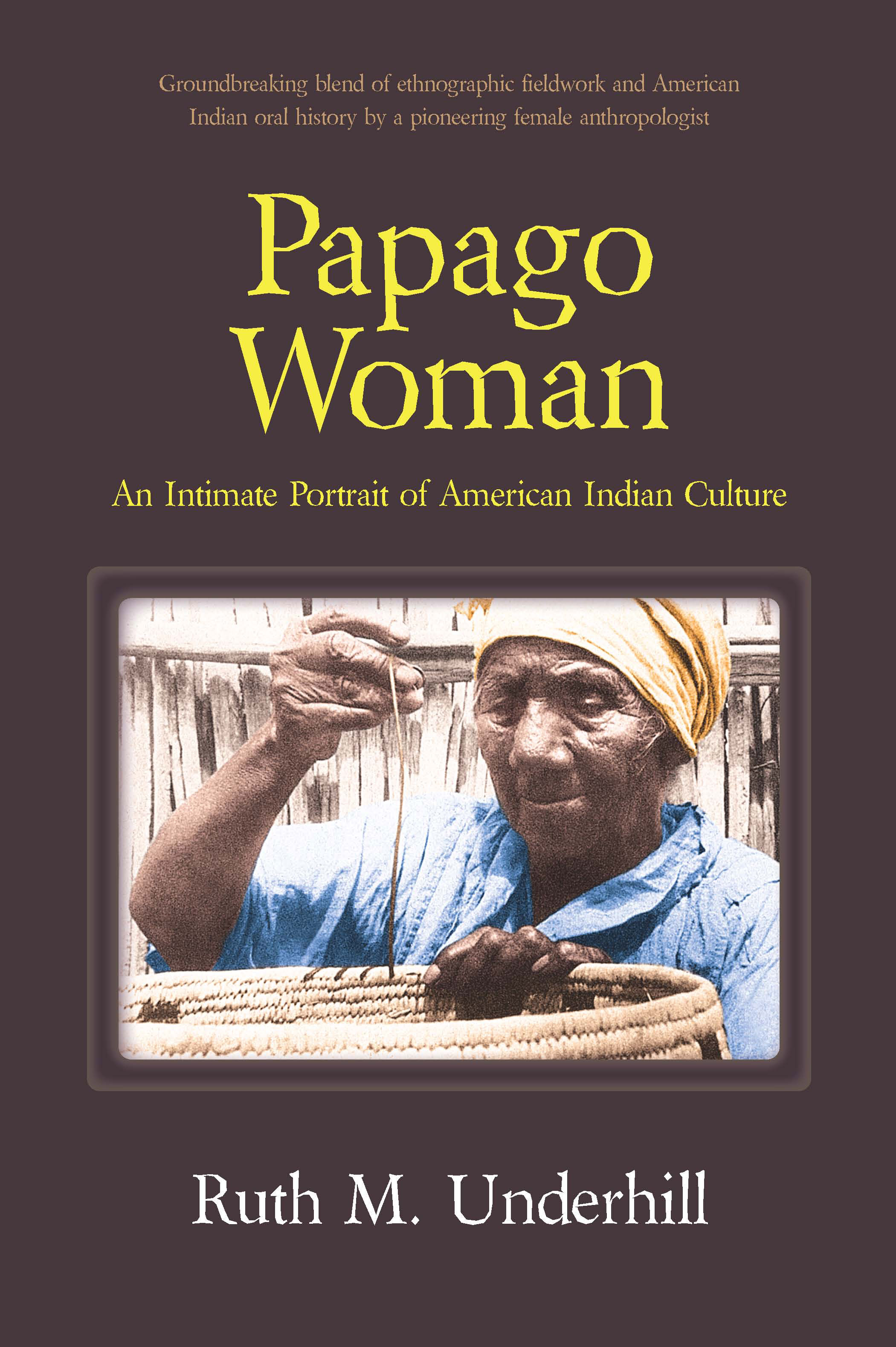
100 pages, $19.95 list
0-88133-042-6
978-0-88133-042-7
© 1979
paperback
eBook availability
Similar Titles
Papago Woman
An Intimate Portrait of American Indian Culture
Anthropologist Ruth M. Underhill (1883–1984), a widely acknowledged expert on Native American life, published The Autobiography of a Papago Woman in 1936, the first-known oral history of an American Indian woman. The story of Maria Chona, a Papago (Tohono O’odham) woman, is a sequence of intimate episodes and crises from her traditional and nontraditional life, including childbearing, marriages, family and reservation life, song making, and knowledge of practical medicine. The strong Papago fear of women’s impurity restricted her, and all females, from having an active role in ceremonial life, yet her independent spirit and dynamic personality led her to challenge tribal taboos.
The rare autobiography of Chona, which forms the core of this historically significant case study, appears in Part II of Papago Woman. Underhill adds interpretive analysis, historical background, and absorbing ethnological descriptions in Part I as well as commentary on Papago views on child training, women, love, and the continuing effects of Roosevelt’s New Deal in Part III.
Useful student study questions (by Catherine Lavender) are included.
The rare autobiography of Chona, which forms the core of this historically significant case study, appears in Part II of Papago Woman. Underhill adds interpretive analysis, historical background, and absorbing ethnological descriptions in Part I as well as commentary on Papago views on child training, women, love, and the continuing effects of Roosevelt’s New Deal in Part III.
Useful student study questions (by Catherine Lavender) are included.
Reactions
“Hardly at any point was this life touched by our white standards of existence. From the beginning to end it has run a different current, filled with achievements, with joys and sorrows that arose out of the substance of life among her people. Her story—whether she is telling of being given to a husband she has never seen, or of her father’s adopting his enemy’s scalp into the household, or of the village ceremonials—sacrifices nothing of the accuracy of an ethnologist’s formal account; but it has also what the latter can hardly attain—the breath of life.” —Ruth Benedict
1. Chona: Her Land and Time
2. The Autobiography of Chona, A Papago Woman
3. Child Training, Women, Love, and the Present
2. The Autobiography of Chona, A Papago Woman
3. Child Training, Women, Love, and the Present